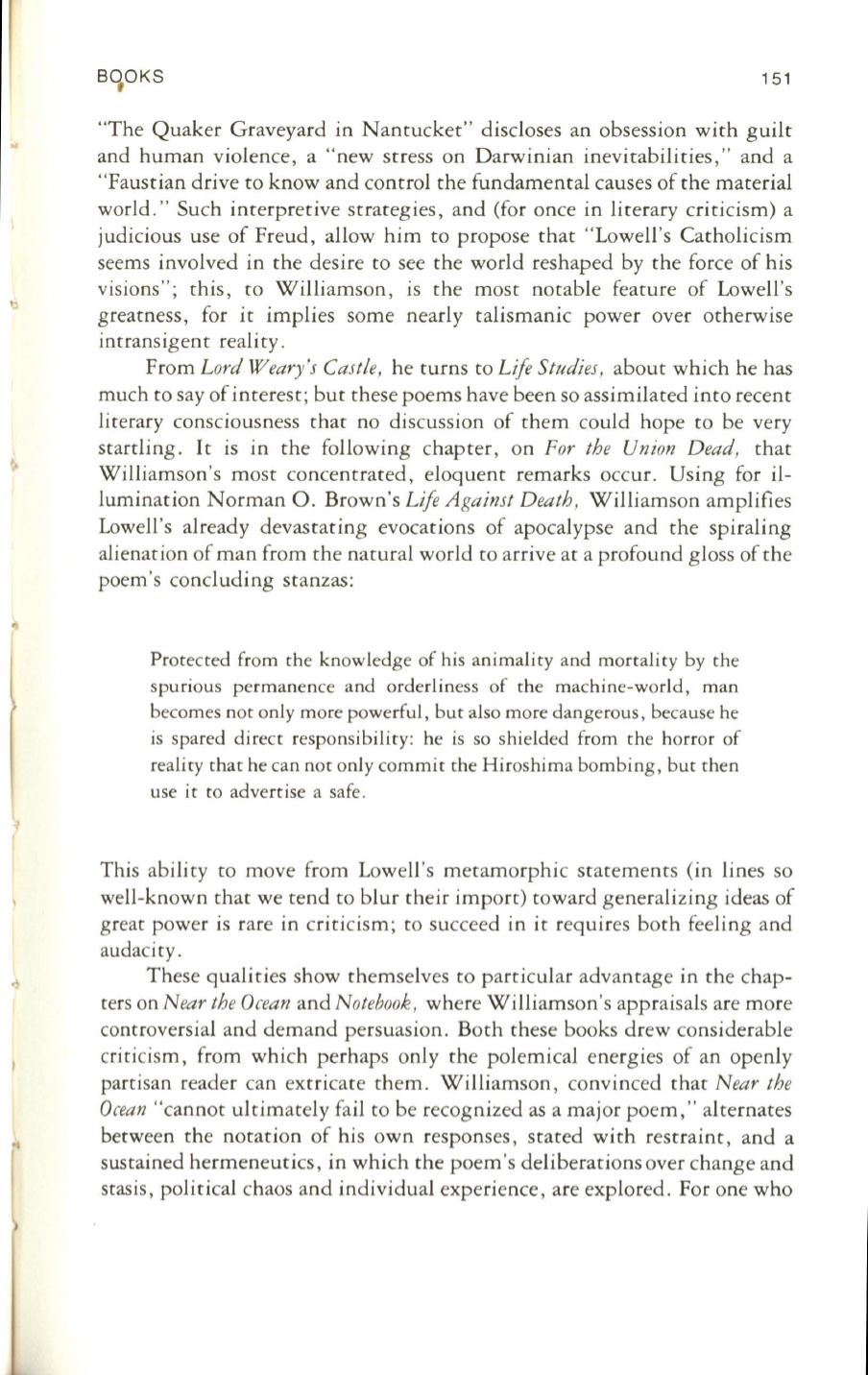
..
Bq OKS
151
"The Quaker Graveyard in Nantucket" discloses an obsession with guilt
and human violence , a "new stress on Darwinian inevitabilities," and a
"Faustian drive
to
know and control the fundamental causes of the material
world. " Such interpretive strategies, and (for once in literary criticism) a
judicious use of Freud, allow him
to
propose that "Lowell's Catholicism
seems involved in the desire to see the world reshaped by the force of his
visions"; this, to Williamson, is the most notable feature of Lowell's
greatness, for it implies some nearly talismanic power over otherwise
intransigent reality.
From
Lord W eary's Castle,
he turns to
Life Studies ,
about which he has
much to say of interest; but these poems have been so assimilated into recent
literary consciousness that no discussion of them could hope to be very
startling.
It
is in the following chapter, on
For the Union Dead,
that
Williamson's most concentrated, eloquent remarks occur. Using for
il–
lumination Norman O. Brown's
Life A gainst Death ,
Williamson amplifies
Lowell's already devastating evocations of apocalypse and the spiraling
alienation of man from the natural world to arrive at a profound gloss of the
poem 's concluding stanzas:
Protected from the knowledge of his animality and mortality by the
spurious permanence and orderliness of the machine-world , man
becomes not only more powerful, but also more dangerous, because he
is spared direct responsibility: he is so shielded from the horror of
reality that he can not only commit the Hiroshima bombing , but then
use it
to
advertise a safe .
This ability to move from Lowell 's metamorphic statements (in lines so
well-known that we tend to blur their import) toward generalizing ideas of
great power is rare in criticism ; to succeed in it requires both feeling and
audacity .
These qualities show themselves
to
particular advantage in the chap–
ters on
N ear the Ocean
and
N otebook ,
where Williamson's appraisals are more
controversial and demand persuasion . Both these books drew considerable
criticism, from which perhaps only the polemical energies of an openly
partisan reader can extricate them . Williamson, convinced that
Near the
Ocean
"cannot ultimately fail to be recognized as a major poem, " alternates
between the notation of his own responses, stated with restraint, and a
sustained hermeneutics, in which the poem's deliberations over change and
stasis, political chaos and individual experience, are explored. For one who


